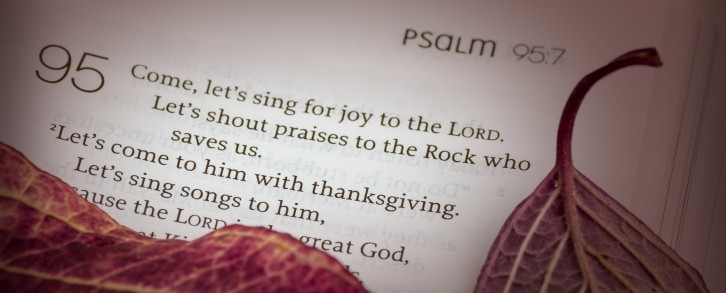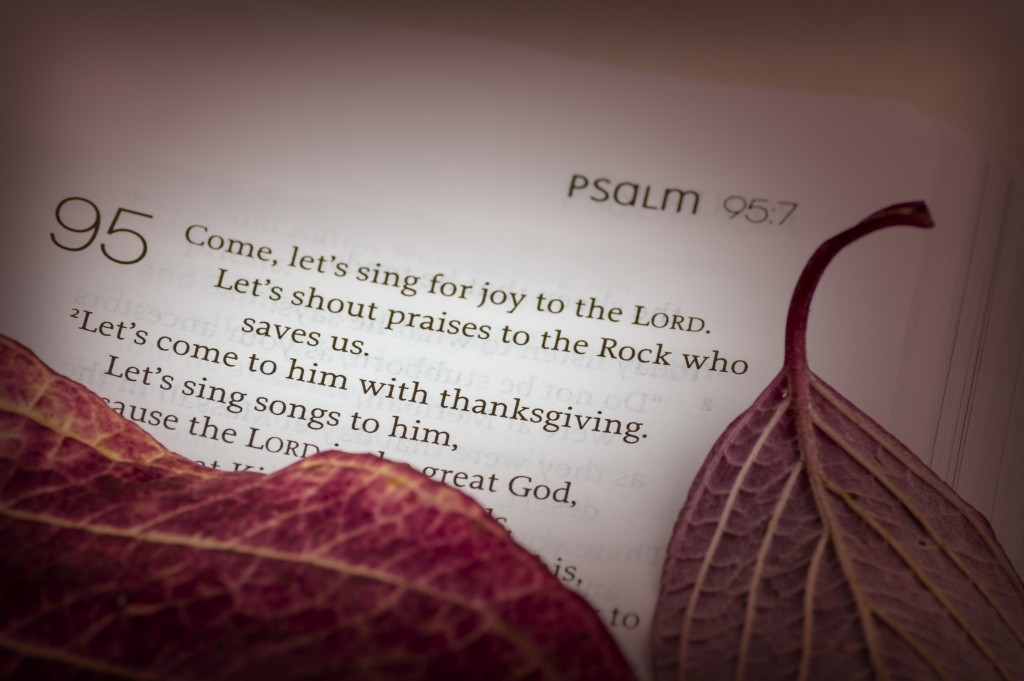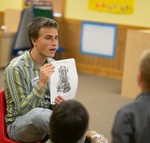Singing as proclamation of the Word
This is the second in a three part series by Greg Cooper on the extent to which singing serves as an effective means of the proclamation of God’s Word.
In our last post, we discussed proclamation as being central to Christian growth – as the word is proclaimed, the Spirit works to change us. But in the task of proclamation, we must also consider that we are intellectual, emotional, and physical beings, and every aspect of our broken being needs transforming by the Spirit. What place, then, might singing have within this approach to proclamation?
There are over four hundred references to singing in the Bible, fifty being direct exhortations to sing (located primarily in the Psalms).[1] While singing is mentioned only briefly in the New Testament, it is nonetheless presented as a profoundly meaningful activity for God’s people. In Colossians, Paul instructs: “Let the message of Christ dwell among you richly as you teach and admonish one another with all wisdom through psalms, hymns, and songs from the Spirit, singing to God with gratitude in your hearts.”[2] This short verse identifies the goal of singing – to allow the message of Christ (the gospel) to dwell richly among the church. It also highlights that we sing to God with gratitude (a ‘vertical’ dimension), but we also sing to one another, teaching and admonishing – or correcting – with all wisdom (a ‘horizontal’ dimension). Indeed, this verse comes immediately after Paul’s exhortation for transformation – to put off sin and put on holiness.[3]
This suggests singing may have a role to play in how we might achieve such transformation. And importantly, this call to ‘teach and admonish’ is also present Paul’s description of proclamation in Colossians 1, discussed in our last post. This suggests a mutual function of spoken proclamation and singing.
In a parallel passage, Paul commands the Ephesians to “be filled with the Spirit, speaking to one another with psalms, hymns, and songs from the Spirit. Sing and make music from your heart to the Lord, always giving thanks to God the Father for everything.”[4] Again, both the vertical (giving thanks to God) and horizontal (speaking to one another) dimensions of singing are present. The latter suggests singing is a language through which believers communicate with each other. Of significance also is the connection between singing and Paul’s instruction in these verses to “be filled with the Spirit.” Steven R. Guthrie highlights the Greek here as showing that “[s]inging and the filling of the Holy Spirit are bound together grammatically,” and this “excludes any characterization of this injunction as a ‘stray remark’.”[5] Instead, singing is one means by which we are filled with the Spirit in the corporate setting.[6] If we are singing God’s Word,[7] we can trust that the Spirit works in us through the Word. The Word, Paul states, is the “sword of the Spirit”.[8]
This presents an exciting opportunity for the church today. For part of the Spirit’s transformation of individuals into Christ-likeness[9] is in bringing wisdom. As Guthrie argues, the command in Ephesians 5:18 to be filled with the Spirit “is also a command to be filled with the wisdom and understanding that come from the Spirit.” Accordingly, speaking to one another through song “is one means by which the Spirit reveals the wisdom of God.”[10] This function of song speaks to what D.A. Carson describes as the church’s responsibility of “educating, informing and transforming the minds of those who attend, of training the people of God in righteousness”.[11] To this end, singing appears to allow God’s Word to dwell richly in us, such that the Spirit may work powerfully to transform and edify the church.
[1] B. Kauflin, True Worshippers (Nottingham: Inter-Varsity Press, 2015), 100.
[2] Colossians 3:16.
[3] Colossians 3:5-14.
[4] Ephesians 5:18b-20.
[5] S. Guthrie, ‘The Wisdom of Song’ in J. Begbie and S. Guthrie, eds. Resonant Witness: Conversations Between Music and Theology (Grand Rapids: Eerdmans, 2011), 387.
[6] Guthrie, ‘The Wisdom of Song’, 387.
[7] Colossians 3:16.
[8] Ephesians 6:17.
[9] 2 Corinthians 3:18.
[10] Guthrie, ‘The Wisdom of Song’, 390.
[11] D.A. Carson, ‘Worship Under The Word’ in D.A. Carson, ed. Worship By The Book (Grand Rapids: Zondervan, 2002), 56.
- Greg Cooper currently works part time with Effective Ministry, researching the place and importance of music in disciple-making. He is also Creative Director of EMU Music.








